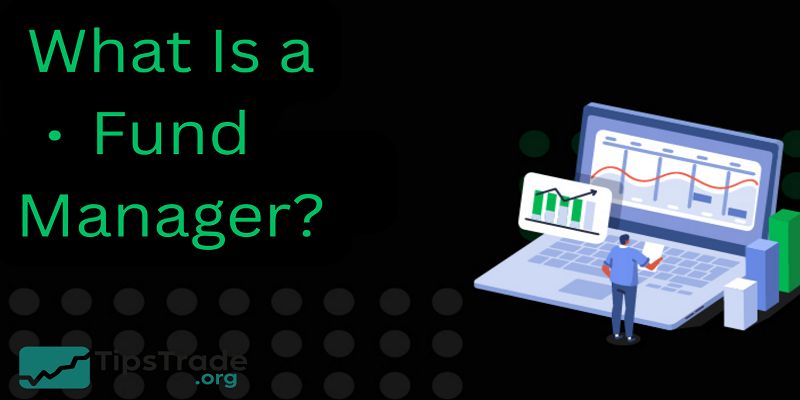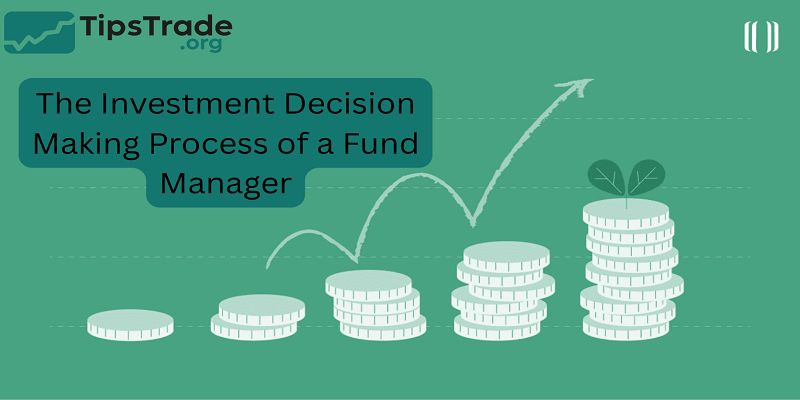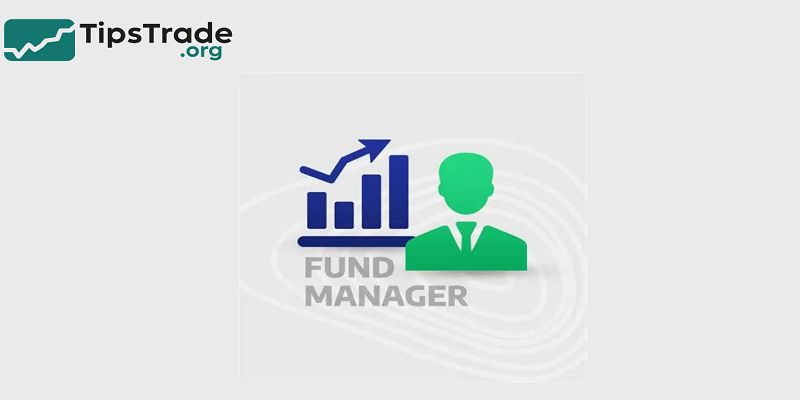Fund manager is one of the most influential roles in the world of finance and investment management. They are responsible for allocating and managing investor capital across asset classes such as equities, bonds, derivatives, ETFs, and private investments. According to the Investment Company Institute (ICI), global assets under professional management have exceeded $100 trillion, illustrating how much trust individual and institutional investors place in Fund Managers. Visit tipstrade.org and check out the article below for further information.
What Is a Fund Manager?

A Fund Manager is a licensed investment professional responsible for making buy, sell, or hold decisions on behalf of a fund’s shareholders or investors.
Their mission is to achieve the fund’s stated objective—whether it is capital appreciation, income generation, risk preservation, or a balanced return.
While individual investors make decisions for personal wealth, Fund Managers act as fiduciaries, meaning they are legally required to act in the best interest of their investors.
This responsibility is taken seriously in regulatory frameworks such as the SEC in the United States, the FCA in the United Kingdom, MAS in Singapore, or the State Securities Commission (SSC) in Vietnam.
The role requires a strong command of financial theory, macroeconomic trends, valuation models, competitive industry dynamics, and behavioral finance.
Successful Fund Managers must identify investment opportunities early, understand the risk implications, and allocate capital strategically. In professional settings, they collaborate with analysts, traders, compliance officers, and portfolio construction teams.
Their performance is commonly measured using metrics such as alpha, Sharpe ratio, Treynor ratio, and benchmark outperformance. In essence, a Fund Manager transforms raw financial data into strategic, profitable decisions.
What Does a Fund Manager Do Daily?
A Fund Manager’s daily routine is fast-paced, analytical, and deeply tied to market activities. Their work typically starts before markets open, with a review of overnight economic news, global index movements, geopolitical events, and earnings announcements.
Fund Managers often check updates from sources such as Bloomberg, Reuters, the Federal Reserve, or the European Central Bank.
Key daily tasks include:
- Market Research: Monitoring macroeconomic indicators like inflation (CPI), GDP, unemployment, and interest-rate decisions.
- Company Analysis: Reading earnings reports, participating in corporate briefings, and updating financial models using discounted cash flow (DCF), comparable company analysis, or scenario simulations.
- Portfolio Monitoring: Checking exposure to sectors, geographic regions, factor risks, and liquidity thresholds.
- Trade Execution: Making buy/sell decisions or coordinating with traders to execute orders within regulatory limits and trading costs.
- Client Reporting: Preparing updates for investors, creating presentations, and responding to inquiries.
A senior equity manager once said in a CFA Institute interview: “The majority of my work is preparation. Real value comes long before the trade.” This aligns with research showing that disciplined research—not spontaneous reactions—drives long-term fund performance.
Key Roles and Responsibilities of a Fund Manager

Fund Managers shoulder significant responsibility because their decisions directly influence investor outcomes. They must balance return generation with risk mitigation while following legal, ethical, and compliance guidelines. Their responsibilities extend far beyond selecting stocks or bonds. A Fund Manager must:
- Create investment strategies that match the fund’s mandate.
- Build diversified portfolios and rebalance them periodically.
- Maintain compliance with regulatory standards such as AML, KYC, and investment restrictions.
- Monitor performance relative to benchmarks like the S&P 500, VN30, MSCI World, or sector indices.
- Communicate transparently with investors through fact sheets, letters, and roadshows.
Ultimately, Fund Managers serve as trusted stewards of capital. Many institutional clients—pension funds, insurance companies, sovereign wealth funds—require stable long-term performance, meaning that Fund Managers must remain disciplined even during volatile periods.
Additional Responsibilities in Professional Funds
In addition to strategic responsibilities, Fund Managers handle a wide range of operational and compliance tasks that are essential for smooth fund operations.
In mutual funds or ETFs, managers work closely with custodians and administrators to ensure NAV (Net Asset Value) is calculated accurately and published daily. They manage:
- Cash Flow: Ensuring enough liquidity for redemptions, margin calls, or investment opportunities.
- Risk Control: Running stress tests, monitoring VaR (Value at Risk), and adhering to counterparty and sector limits.
- Documentation: Preparing reports for regulators and auditors.
- Investor Relations: Explaining fund strategy, performance drivers, risks, and future outlook.
In hedge funds and private equity funds, Fund Managers also engage in deal sourcing, due diligence, and negotiations.
Harvard Business Review research highlights that successful Fund Managers integrate financial insights with qualitative assessments of management teams, governance, and long-term strategy.
Types of Fund Managers in the Modern Investment Landscape

Different types of Fund Managers exist because investors have diverse goals: some seek stable income, others want aggressive growth, and some need inflation protection. Each type of Fund Manager uses unique tools, data sets, and investment models.
Equity Fund Manager
Equity Fund Managers focus on investing in publicly traded companies. Their goal is capital appreciation through stock selection and sector allocation.
They evaluate companies by analyzing revenue growth, profit margins, competitive advantages, management credibility, and valuation multiples such as P/E, P/B, or EV/EBITDA.
Equity managers must be comfortable with volatility, as stock markets can fluctuate rapidly.
Common strategies include:
- Growth investing
- Value investing
- Dividend investing
- Sector rotation
- Momentum strategies
Morningstar research shows that equity managers who maintain a consistent approach outperform those who frequently shift strategies based on market noise.
Fixed Income Fund Manager
Fixed-income managers oversee investments in government bonds, corporate bonds, and other debt instruments. Their goal is income generation and capital preservation. They track interest-rate trends, inflation expectations, credit ratings, and yield curves.
Their success depends on understanding:
- Duration and convexity
- Spread analysis
- Credit default risk
- Central bank policy
- Liquidity conditions
Studies from the Federal Reserve highlight that bond fund performance is heavily influenced by macroeconomic indicators—especially changes in interest rates.
Hedge Fund Manager
- Hedge Fund Managers employ sophisticated strategies such as long-short equity, global macro, event-driven, or quant-based models.
- They use derivatives, leverage, and alternative assets to generate absolute returns.
- This requires deep quantitative skills, rapid decision-making, and advanced risk controls.
- Hedge fund managers often earn performance fees—commonly “2 and 20,” meaning 2% management fee and 20% of profits.
Mutual Fund Manager
- Mutual Fund Managers manage pooled retail investments with strict regulatory oversight.
- They prioritize transparency, liquidity, and risk limitations. Their strategies are generally long-only and benchmark-focused.
- They must follow prospectus requirements and regularly disclose holdings.
Private Equity / Venture Capital Fund Manager
- PE and VC Fund Managers invest in private companies. They analyze business models, unit economics, competitive positioning, and potential exit strategies.
- Their work includes due diligence, deal structuring, board participation, and value creation.
- PE managers focus on mature companies; VC managers focus on startups.
ETF Fund Manager
- ETF managers track specific indices, commodities, or strategies.
- They maintain portfolio composition to match index weights, manage authorized participants, and ensure minimal tracking error.
The Investment Decision-Making Process of a Fund Manager

A Fund Manager’s workflow follows a structured, research-driven process designed to minimize bias and maximize long-term results.
Data Collection & Research
- Fund Managers gather data from earnings calls, economic reports, industry analysis, and on-site visits.
- They cross-verify facts using Bloomberg, FactSet, S&P Global, or government sources.
Valuation and Financial Modeling
- Managers build discounted cash flow models, scenario analyses, sensitivity tests, and comparable valuation tables.
- Accurate modeling is crucial, as small errors can distort investment decisions.
Asset Allocation and Portfolio Construction
- Managers determine how much capital to allocate to sectors or assets based on risk–return profiles.
- Diversification, correlation analysis, and factor exposures are key considerations.
Risk Management and Stress Testing
- Managers run risk simulations using tools such as VaR, Monte Carlo analysis, or historical scenarios.
- They limit exposure to single issuers, sectors, or countries.
Trade Execution
- Trades are placed with attention to timing, liquidity, transaction costs, and regulatory requirements.
Monitoring and Rebalancing
- Fund Managers continuously monitor portfolio performance, reassess thesis validity, and rebalance according to market conditions.
Essential Skills for a Successful Fund Manager

Fund Management is both art and science. Top-performing professionals share several core skills.
Financial Analysis & Modeling
- Fund Managers must interpret financial statements, analyze ratios, and build valuation models.
- Strong Excel and Python skills are essential.
Market Knowledge
- Managers track global macro trends, sector dynamics, regulatory changes, and technological disruptions.
Quantitative Thinking
- Statistical literacy helps managers detect patterns, model risks, and evaluate probabilistic scenarios.
Communication Skills
- Fund Managers interact with clients, analysts, and executives. Clear communication builds trust and credibility.
Ethics & Professional Responsibility
- Fiduciary duty is the foundation of fund management. Managers must act honestly, avoid conflicts of interest, and follow compliance standards.
Conclusion
Fund manager significantly influences the overall performance and risk profile of an investment fund. Their expertise, decision-making, and management style directly affect investor outcomes. Choosing a skilled and trustworthy fund manager is essential for anyone looking to invest confidently and effectively.

